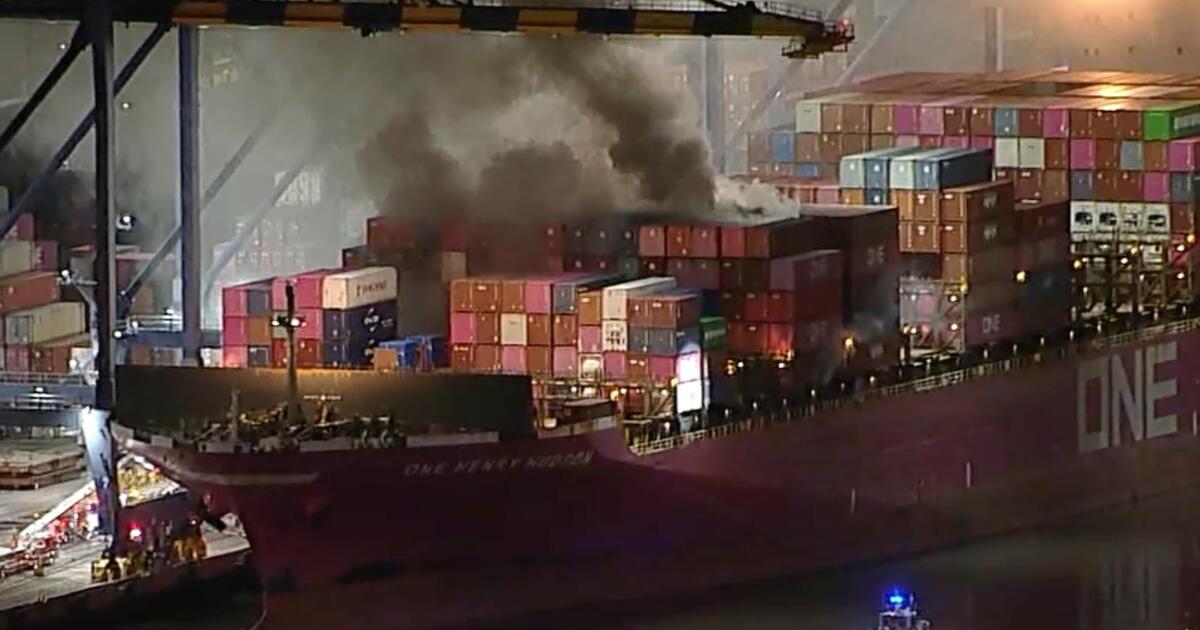
"The Los Angeles Fire Department waited nearly six hours after responding to a massive hazardous materials fire at the Port of L.A. on Friday to order residents to "get inside IMMEDIATELY and close all windows and doors" due to potential toxic smoke. The department's shelter-in-place order for areas of San Pedro and Wilmington was then lifted at 6:30 a.m. Saturday as fire crews gained the upper hand on the stubborn blaze aboard cargo ship One Henry Hudson."
"However, it wasn't until 8:58 p.m. Sunday - more than 38 hours after the order expired - that many residents received a series of alerts informing them the order had been lifted. In addition, some residents in Rancho Palos Verdes reported erroneously receiving shelter-in-place alerts from the city of L.A.'s emergency alert system. The city of Rancho Palos Verdes released a statement via email and social media around 1:30 a.m. Saturday instructing residents to ignore the order."
"It took nearly six hours after a massive hazardous materials fire ignited at the Port of L.A. for an order to be issued telling residents to shelter in place due to air quality concerns. Some emergency alerts were erroneously sent to Rancho Palos Verdes residents, underscoring continued challenges with regional alert systems. These time lags and errors have sparked concerns among residents, including about the effectiveness of regional emergency alert systems - an issue that surfaced during the Eaton fire in January."
A hazardous materials fire aboard the cargo ship One Henry Hudson at the Port of Los Angeles led to a shelter-in-place order for San Pedro and Wilmington issued nearly six hours after initial response. The order was lifted at 6:30 a.m. Saturday, but many residents did not receive alerts that it was lifted until 8:58 p.m. Sunday, more than 38 hours later. Some Rancho Palos Verdes residents received the shelter-in-place alerts in error and were later told to ignore them. These delays and erroneous messages raised concerns about the effectiveness of regional emergency alert systems and echoed earlier failures during recent California fires.
Read at Los Angeles Times
Unable to calculate read time
Collection
[
|
...
]